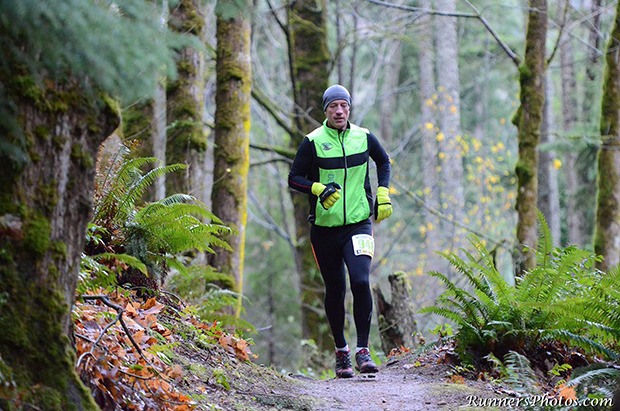Immediately after learning his older brother, Alan, had cancer, Mark Casey knew he had to help.
“I wanted to do something, but I know that I can’t cure cancer,” said Casey, 43, a Lakeland Hills resident and a triathlete. “But I thought, ‘You know what? Maybe there is an opportunity out there for me.’”
Casey’s seven brothers and one sister were shocked to learn that Alan had stage 3 multiple myeloma, an incurable cancer. He was diagnosed in October.
“It was a surprise to all of our family because it doesn’t run in our family,” Casey said. “We were taken off guard. We were all concerned about him because he has nine children, and many of them still live at home, with him as the main breadwinner.
“Basically, we didn’t want him to die. You don’t want to lose a sibling to any means, but especially not under those circumstances,” Casey said. “With him being at stage 3, the median life expectancy at his age (47) without treatment is only 2½ years.”
So Casey scoured the Internet to learn more about the disease. And when his search took him to the Multiple Myeloma Research Foundation’s (MMRF) website at www.themmrf.org, he knew he had found what he was looking for.
“I came across multiple myeloma and Ironman,” Casey said.
The site detailed the MMRF’s “Team for Cures” Endurance Events Program, which raises money for cancer research. The program has raised $12.5 million in the past seven years.
“I thought, ‘Hey, I’ve done Ironman before.’ ”
Casey – who had completed 42 marathons in the previous four years – started competing in Ironman competitions a year ago. The endurance races are grueling, 140.6 miles long, with competitors swimming 2.4 miles, bicycling 112 miles and running 26.2 miles.
“I did my first at Lake Tahoe,” he said. “I realized that here was my opportunity to compete in an Ironman and raise money and awareness for cancer research. The MMRF seemed like a really great fit. Ninety-percent of the funds that are raised by MMRF actually go to research.”
Casey wants to help advance the cause.
“I looked at all the data, all the things they’ve come up with,” he said. “They’ve come up with six new drugs in the last 11 years. I knew my brother needed treatment if he was going to beat this, and I wanted to do something to help. To me, it made sense to use my health because I’ve been blessed with a healthy body, to help him.”
Through the efforts of 1,000 endurance athletes, the MMRF expects to raise more than $3 million this year.
On July 27, Casey competes in the Lake Placid (N.Y.) Ironman, the oldest race of its kind in the country. For the last six months, he has been preparing himself for the race, which he must finish in fewer than 17 hours.
“During the last six months, I’ve averaged about 10-15 hours a week training,” Casey said. “It involves getting up early. Almost every day during the week, I’m getting up at 4 a.m. and out on the bike. I’m out at Lake Tapps swimming at 5:30 in the morning. It requires a lot of discipline.”
Casey said it’s not unusual for him to put in nearly 50 miles on the bike before most people are even up.
“This morning me and a buddy were on the bike at 5 a.m., out to Orting, then Kapowsin and back,” he said. “We got in about 46-47 miles in just a couple hours.”
To raise money, Casey’s supporters contribute through his website at www.active.com/donate/14mmrfimlakeplacid/LPMCasey.
“I’ve had a lot of family and friends who have donated,” Casey said. “When my brother found out he needed drug therapy, he applied for a grant, because with his insurance, the out-of-pocket would have cost him $5,000 to pay for all these drugs. He applied for and got a grant through the MMRF, which happened to be for the same amount of money that I’ve raised so far. It’s fascinating how that worked out. Even though the money I’ve raised hasn’t gone directly to him, MMRF has paid through the grant for his drug therapy.”
And for Alan, the therapy has paid off.
“He is doing much better,” Casey said. “He started the drug therapy in the middle of November. As of June 10 he received news from the doctor that the cancer is officially in remission. However, because it’s an incurable cancer, he may have to go through this process again if the cancer shows up again, typically in about five years. But he’s hoping he’ll be an atypical patient, and it won’t show up again for 20 years.”
Alan isn’t the only one the MMRF has helped.
“We have found ways to get the impossible done with events like Ironman Lake Placid,” said Alicia O’Neill, director of endurance events for the MMRF. “The success of these events is directly correlated to the passion of each athlete, who not only takes on the challenge of these strenuous races but makes a difference in the lives of patients with multiple myeloma.
“These caring individuals reach out to their friends, coworkers and family members, who in turn contribute whatever amount they can,” she said. “It all adds up, and the power of one becomes the power of many.”
To learn more about the foundation, visit www.themmrf.org.


